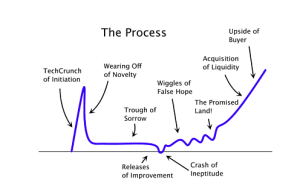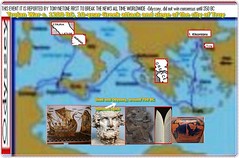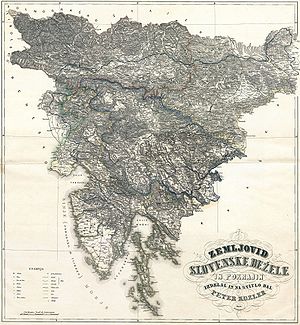This post was inspired by an entrepreneur who I barely know from one of my previous lives, who sought a meeting because he was put in a position of running a startup. While thinking about what to say to him in the first 30 mins, I realized that it really can be boiled down to a handful of core truths. everything else is a footnote, or tactics.

So, you’re starting a startup with a couple of your good friends? there are only two ways you could have ended up in this situation:
- you are so smart, that you never had to really think hard about what you are doing with your life. you go where it takes you and make it work in your favor, and have fun while doing it;
- or, you’re so dumb, you think doing startups is fun because it’s fashionable and you want to be just like mark
I sure hope you’re of the first kind, or that you are at least smart enough, to recognize yourself in the second description and give up while you still can.

Odyssey (Photo credit: tonynetone)
If you’re still reading, I guess you really want to know what it takes to run a startup. For explaining startup management issues, I really like the Platonic metaphor of a Sailboat. I might explain this some other time in more detail, because for today, we just need to be aware of the Guiding Star – when you are in the middle of the sea, without GPS, and with a couple dozen crew member who’s fates depend on your judgement, it clearly is important that you know which direction to sail to reach the destination.
It is no different in a Startup. you start a startup, because there is something tangible in your mind, that you need to make tangible for everyone else – a vision / an idea, that you see clearly, and can imagine how to do it. that’s your Guiding Star. thinking of that idea gives you strength to move forward, and to think creatively about shortcuts. discussing that idea makes other people join you on the journey, because of your ability to paint it so clearly for them, that they can see their role in getting to the end.
so here’s the heart of the advice for any first-time founder of a startup: never ever loose your Guiding Star. if you stop being obsessed with it, just stop.
Robin Klein taught me a version of this statement: “the main thing is to keep the main thing the main thing.” the flip side of this statement is, that it is better to kill the startup, than to keep working on it without the inspiration of the Guiding Star. Here’s why: as Fred says, a startup CEO has only three jobs to perform:
- communicate the vision, internally and externally
- assemble the best possible team to execute on that vision
- secure the resources the team needs
I would argue that if you have your Guiding Star – if you can really feel your vision, if thinking of it is making you do things rather than sit still – only then will you be able to communicate the vision. and if you can do that, you will assemble the team, and convince the investors needed to succeed.
inevitably you will choose the wrong direction sometimes. and you will be running short on cash. you will have to do hard practical decisions. but if you have the Guiding Star in front of you, the decisions will make sense, so they will be infinitely easier to make. even if you run out of cash completely, and you are forced to kill your company, if you do that while knowing what you believe in, it’s not a failure, it’s just a learning experience.
and lastly, one thing that has nothing to do with you or your idea. Odyssey needed 10 years to return home, and that’s exactly what you are signing up for – assume your startup will consume you as a whole for 10 years. keep that in mind while you are deciding to start it, and while you are doing your everyday decisions. only if the idea is such, that it would still make sense for you in 10 years time, than you can consider it.
good luck.




















 “Wow! I’m wanted!” I thought to myself upon receipt. But after basking in narcissistic glory for a few seconds, my pride gave way to bemusement. For one, I’ve never met the sender. We’ve exchanged a couple of LinkedIn messages, but I don’t think that qualifies me as a close friend. And on balance the @Garyvee namedrop as a hook to entice the invitee felt more sad than enticing. But most striking, to me, was that this sender is not a PR person or event planner who trades in building social connections, but rather an entrepreneur whose startup I respect.
“Wow! I’m wanted!” I thought to myself upon receipt. But after basking in narcissistic glory for a few seconds, my pride gave way to bemusement. For one, I’ve never met the sender. We’ve exchanged a couple of LinkedIn messages, but I don’t think that qualifies me as a close friend. And on balance the @Garyvee namedrop as a hook to entice the invitee felt more sad than enticing. But most striking, to me, was that this sender is not a PR person or event planner who trades in building social connections, but rather an entrepreneur whose startup I respect.












 Bob at
Bob at 